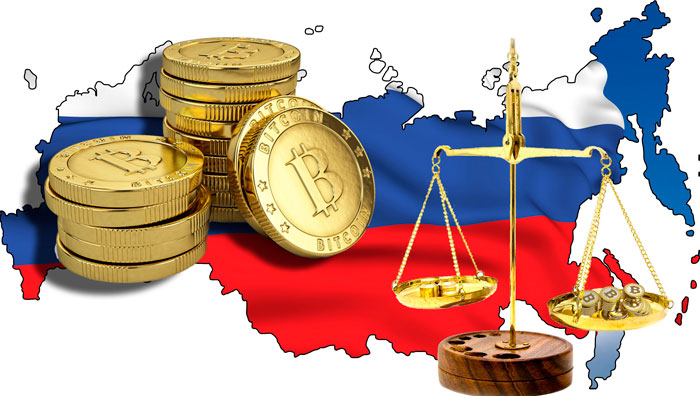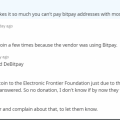
The Federal Tax Service and the court sided with the Russian company, which offered clientsthe ability to pay for its services with cryptocurrencies.
The background to this decision is as follows: in June 2017, the Moscow restaurant Valenok, located in the fifth house on Tsvetnoy Boulevard, began accepting payment with bitcoins. The institution belongs to the famous Russian restaurateur Arkady Novikov, and judging by the reviews, it pleases customers with traditional Russian cuisine and relatively low prices.
Representatives of the institution explained to the media how it works:
“Payment is received in the restaurant’s virtual wallet. At the same time, accounting has a personal ID and password. Having typed the desired combination of letters and numbers, she can check the payment. "
For the first time, this form of payment was used on June 27 - a visitor of the institution paid about 3000 rubles for lunch with bitcoins.
Almost immediately, the innovation took overAttention of the prosecutor. An administrative case was instituted under Part 1 of Art. 15.25 Administrative Code for violation of Art. 9 FZ-173 "On currency regulation and currency control."
During the prosecutor’s inspection, it was establishedthat on June 28, 2017, July 9, 2017, and July 11, 2017 in “Valenka” “operations were performed using virtual currency as payment of bills issued for the rendered restaurant services”.
However, the tax and courts sidedcompany. How did they motivate their position? The fact is that the Federal Law “On Currency Regulation and Currency Control” in its latest version (173-ФЗ) provides for a closed list of currency transactions that foreign currency residents of the Russian Federation can carry out among themselves, as well as the procedure for performing such operations. The ninth article of this law establishes a list of permitted foreign exchange transactions. All operations that are in this article are legal, all that are not in it are illegal.
The position of the tax service is thatThe company's actions to receive bitcoin in the amount of 0.01873676 BTC when paying an invoice in the amount of 2820 rubles for the services provided are not regulated by 173-ФЗ, since virtual currency is not a currency value within the meaning of this law. Bitcoin cannot be attributed to “foreign currency”, since it is not a legal means of payment of any state, does not have a centralized issuer and a single center for controlling transactions, and is also characterized by anonymity of payment.
Consequently, making a payment withthe use of bitcoin is not recognized as a currency transaction. This means that such an operation does not form the very composition of the administrative offense, the liability for which is provided for in Part 1 of Art. 15.25 Administrative Code of the Russian Federation.
According to the results of the proceedings, the deputy chiefInspectorate of the Federal Tax Service of Russia No. 7 in Moscow issued a decision to terminate the proceedings, not seeing in the actions of the organization of the administrative offense under Part 1 of Art. 15.25 Administrative Code of the Russian Federation.
The prosecutor's office appealed this decision first in the Tver District Court, and then in the Moscow City Court, however, both times the courts agreed with the position of the Federal Tax Service.
The decision of the Moscow City Court:
«Virtual currency is not a currencyvalue, therefore, making a payment using virtual currency is not a currency transaction in the concept of Federal Law-173 and does not constitute an administrative offense, liability for which is provided for in Part 1 of Art. 15.25 Code of Administrative Offenses of the Russian Federation. In this regard, the Company’s actions do not constitute an administrative offense under Part 1 of Art. 15.25 Code of Administrative Offenses of the Russian Federation.
At the same time, the courts noted that "the legal definition of virtual currency, as well as their essence, is not defined in the legislation of the Russian Federation."
According to tax lawyer A. Dulkarnaeva, the key conclusion that can be drawn from current law enforcement practice in this episode is this: virtual currency (cryptocurrency) is not a currency value (foreign currency and foreign security). Making a payment using virtual currency is not a currency transaction in the concept of FZ-173 and does not constitute an administrative offense, the liability for which is provided for in Part 1 of Art. 15.25 Administrative Code of the Russian Federation.
</p>



